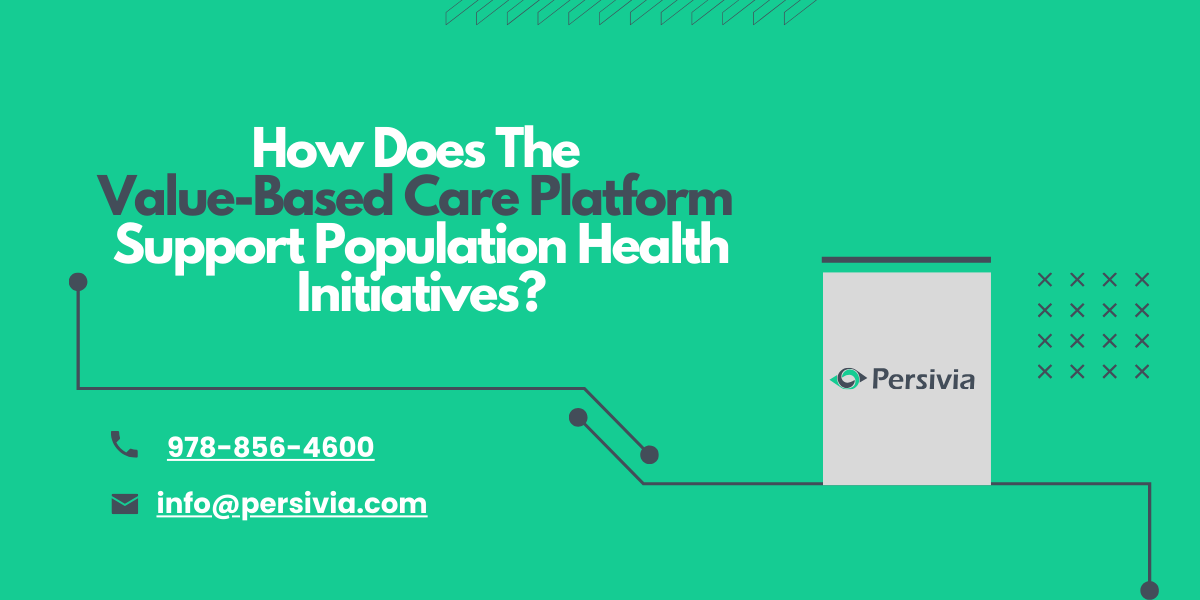
Healthcare technology is changing fast, and the Value Based Care Platform is leading this transformation. These technologies enable healthcare providers to focus on what really matters: keeping people well while properly managing expenses. Healthcare organizations are eager to improve patient outcomes and streamline operations by implementing these solutions. The shift to value-based care from traditional healthcare models signifies a substantial change in the delivery and assessment of healthcare.
Let’s examine how these systems enhance the management of population health.
Smart Data Use Makes Better Healthcare Possible
Healthcare generates massive amounts of data daily. Value-based care platforms turn this data into actionable insights by:
- Combining information from medical records, insurance claims, and social factors
- Spotting patients who need extra attention through risk analysis
- Tracking health patterns across different patient groups
- Assessing patient care to determine what works and what doesn’t
But gathering data isn’t the only thing involved. These platforms help healthcare teams use this information to make real improvements in patient care. They can rapidly determine which people are at risk for specific illnesses or who require preventative care. To better manage resources and provide focused intervention methods, the systems also assist doctors in comprehending general health patterns in their patient populations.
Keeping All Parties On The Same Page
Healthcare functions at its best when there is easy communication among all those involved in patient care. Value-based care platforms make this happen by:
- Creating one place for all healthcare providers to share updates
- Managing patient care plans that everyone can access and update
- Making referrals to specialists simpler and faster
- Tracking patient progress across different care settings
Patients don’t have to tell their history to every new healthcare practitioner because of this coordination, and doctors can make better decisions when they have all the information they need. Additionally, by reducing unnecessary tests and procedures, the platforms enhance patient satisfaction while saving time and money.
Further, care management teams can make sure that everyone is aware of their responsibilities throughout the patient’s care journey. Better results and more effective utilization of healthcare resources are the results of this enhanced communication.
Patient’s Involvement in Their Health
There are better results when patients take an active role in their care. Value-based care programs use several tools to keep patients engaged:
- Patient portals that give easy access to health information
- Remote monitoring tools that track health metrics from home
- Automated reminders for appointments and medications
- Secure communication with medical professionals
These features encourage patients to participate more in their own treatment decisions and maintain communication with their healthcare team.
Making Sure Quality Stays High
Treating sickness is only one aspect of providing high-quality healthcare. Actually, the goal is to stop issues before they start. Value-based care platforms help maintain high standards by:
- Automatically tracking quality measurements
- Providing guidelines for evidence-based care
- Showing real-time data on healthcare performance
- Identifying areas where care can improve
Healthcare teams can spot problems early and make improvements quickly, leading to better patient outcomes. The platforms also help organizations meet regulatory requirements and quality benchmarks essential for value-based care programs.
Managing Health Across Communities
Population health management requires understanding how health issues affect different groups. VBC platforms help by:
- Grouping patients with similar health needs
- Finding gaps in preventive care
- Screening for social factors that affect health
- Creating targeted health programs for specific groups
This targeted approach helps healthcare providers address specific community needs more effectively. The platforms enable organizations to develop and implement population-specific interventions that consider both clinical and social factors affecting health.
Real Success Stories
Several healthcare organizations have seen significant improvements using value-based care platforms:
- The University of Maryland Medical System and CareFirst BlueCross BlueShield collaborated to use advanced risk adjustment algorithms to lower costs and enhance population health. When they were put into practice, patient outcomes improved and resources were used more effectively.
- Evergreen Nephrology used an integrated health platform to better manage kidney disease patients, combining clinical data and claims information for more coordinated care. This approach resulted in improved patient care and reduced complications.
- Medicare‘s Shared Savings Program has helped many healthcare organizations improve care quality while reducing costs through better data management and care coordination. These successes demonstrate the real-world impact of these platforms.
Working Through Common Challenges
Implementing VBC solutions comes with certain challenges:
- Getting different computer systems to work together
- Keeping patient information private and secure
- Training healthcare providers to use new tools effectively
- Making sure all patient groups receive equal care quality
Put Your Population Health Goals Into Action
Ready to transform your approach to population health? The value-based care platform from Persivia provides extensive features for patient interaction, care coordination, and data management. As healthcare businesses adopt value-based care programs, our platform improves patient outcomes and reduces costs.
To learn how we can help your company optimize value-based care and population health management, get in contact with us.



Leave a Reply